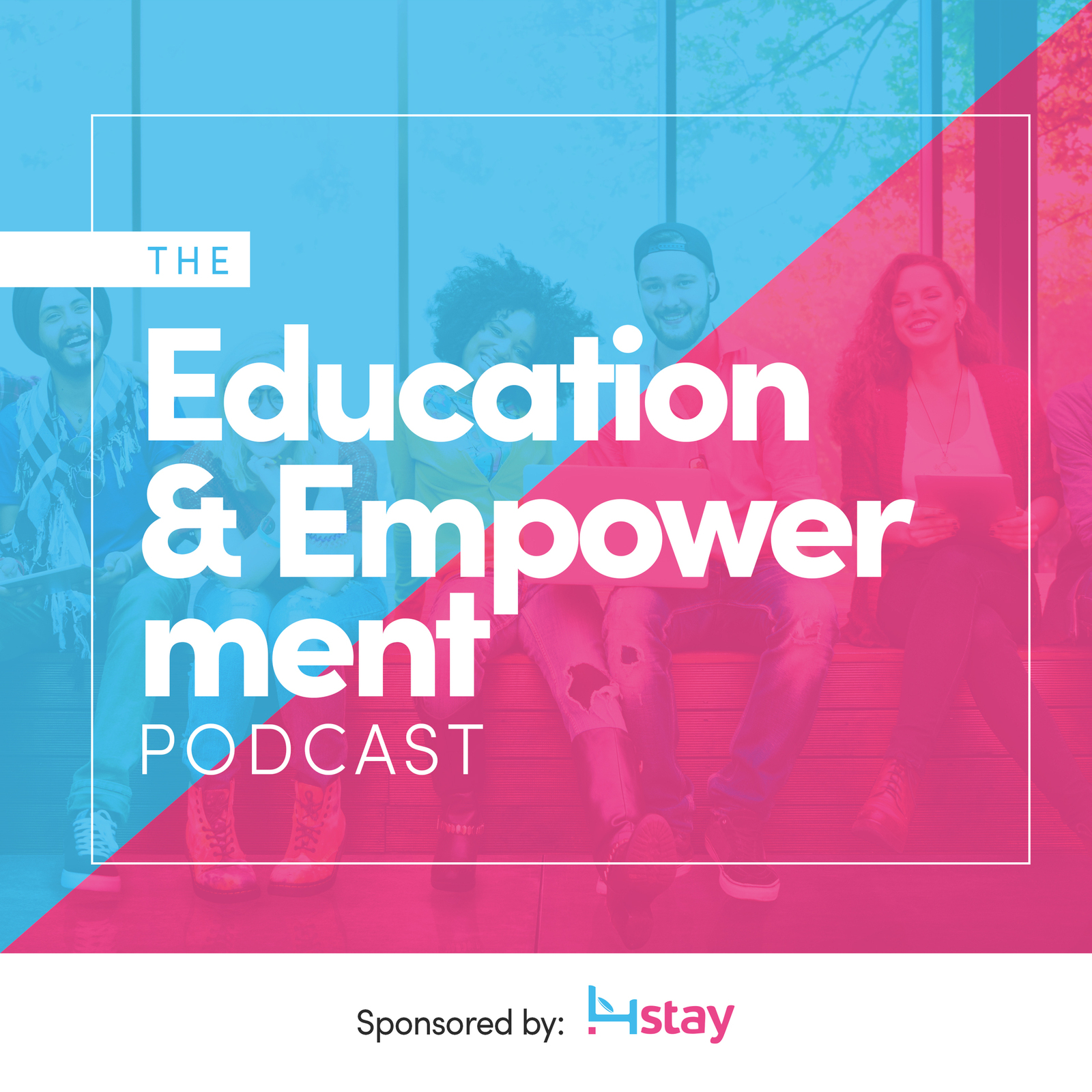
Moving Forward After a Pandemic Year: Student Success Experts Discuss the Future of Higher Education
Bakhtiyor Isoev released two new episodes of his Education & Empowerment Podcast - Powered by Mission Matters
Higher education expert Bakhtiyor Isoev released two new episodes of the Education & Empowerment Podcast. The episodes feature interviews with Andrea Kemp-Ford, Chief Operating Officer for The University of the Potomac in Washington, D.C., and Anna Esaki Smith, a Global education expert who advises higher education institutions, private companies and education organizations on international strategies and thought leadership. In the just-released episodes, Kemp-Ford and Smith discuss the post-pandemic future of higher education and how universities can adapt their academic and operational strategies to support students' long-term success in and out of the classroom.
Customer Service is Key to Student Success During Challenging Times
"We are obligated to help one another", says Andrea Kemp-Ford, the Chief Operating Officer for The University of the Potomac based in Washington, D.C. Ford believes that customer service is one of the factors that contributes to the university's 96% retention rate, along with dedicated faculty and relevant degree programs. When the Global pandemic hit in 2020, the University of the Potomac was well-suited to support students throughout an unprecedented time because of its already-robust online and hybrid course offerings.
But it was still a challenging year for faculty and students alike. The university worked to meet that challenge by paying attention to individual students. "If a student reaches out and says, I don't have food, we're going to give them food," Ford says. This kind of personal touch extends to all aspects of the university's operations--from course design to technology use to degree offerings to student housing. For example, the university continues to offer online and hybrid course options to accommodate students who still don't feel comfortable attending in person. And perhaps most important, Ford says, the company is actively working to keep online instruction engaging and innovative.
"The industry has changed," Ford says. The higher education industry must adapt in order to support students. Ford recommends preparing faculty to deliver courses online in order to ensure that students get the same experience they would get in person, supporting students and staff who may be struggling with mental health, and partnering with third-party companies when possible to help grow the institution. She emphasizes choosing relevant degree programs to address gaps in our country's infrastructure made plain by the pandemic, such as early childhood education and medical assistance.
The bottom line, though, is human connection. "I have two sons," Ford says. "If they ran into difficulty while they were at school, I would want someone at that university to help them if they could."
Listen to the full interview of Andrea Kemp-Ford with Bakhtiyor Isoev on 4stay.
Weathering a Pandemic: The Future of Higher Education
"With challenges come opportunities," says Anna Esaki Smith, a Global education expert. Because of her vast experience advising higher education institutions and organizations, Smith understands the challenges both students and institutions face during what she calls "enormous disruption."
However, Smith believes that both domestic and international students can capitalize on an opportunity to ensure their own success by articulating what they want out of an education. On the institutional side, colleges and universities have a chance to hone their messaging and outreach strategies, develop online programming, and manage funds more efficiently.
Smith calls the question of how to define students success a "deeply profound one"--indeed, it's a question that individual students may answer differently. The first step is supporting students as they "articulate" what it is they want in a college experience. Smith then helps institutions tailor their messages more specifically to students based on what students want. For example, in an increasingly competitive market, universities must think about recruitment of international students more strategically.
Though students are more empowered than ever, Smith acknowledges the toll the pandemic has taken on young people's mental health. The stressful life of a university student becomes even more stressful when students are worried about the physical and/or financial health of their communities. One way institutions can help combat anxiety and depression is by bolstering online course offerings. Along with regaining sources of revenue and finding ways to manage funds more effectively, investing in online learning is the most important thing to consider when planning for an uncertain future, Smith says. "Universities who do will thrive."
Listen to the full interview of Anna Esaki Smith with Bakhtiyor Isoev on 4stay.
About: The Education & Empowerment Podcast explores success and advancement through education by interviewing today's top leaders in the fields of education, business and technology. This show is brought to you by 4stay, a SaaS-enabled Online Booking marketplace for student and intern housing. Learn more at: https://4stay.com/
Want to partner with 4stay? Explore our Turnkey All-in-One Solutions at offcampus.4stay.com or landlords.4stay.com.
Email us at [email protected] or learn more at 4stay.com
More episodes may be found here:https://podcast.4stay.com/
Media Communications
Inquiries: [email protected]
Publicist for Adam Torres and Mission Matters Media KISS PR Brand Story PressWire
Brand Publicity Partners KissPR.com
For more details, visit Kisspr.com [PR Distribution]. KISS PR Digital PR & Marketing powers the Mission Matters Business podcast with brand storytelling. T: 972.437.8942
